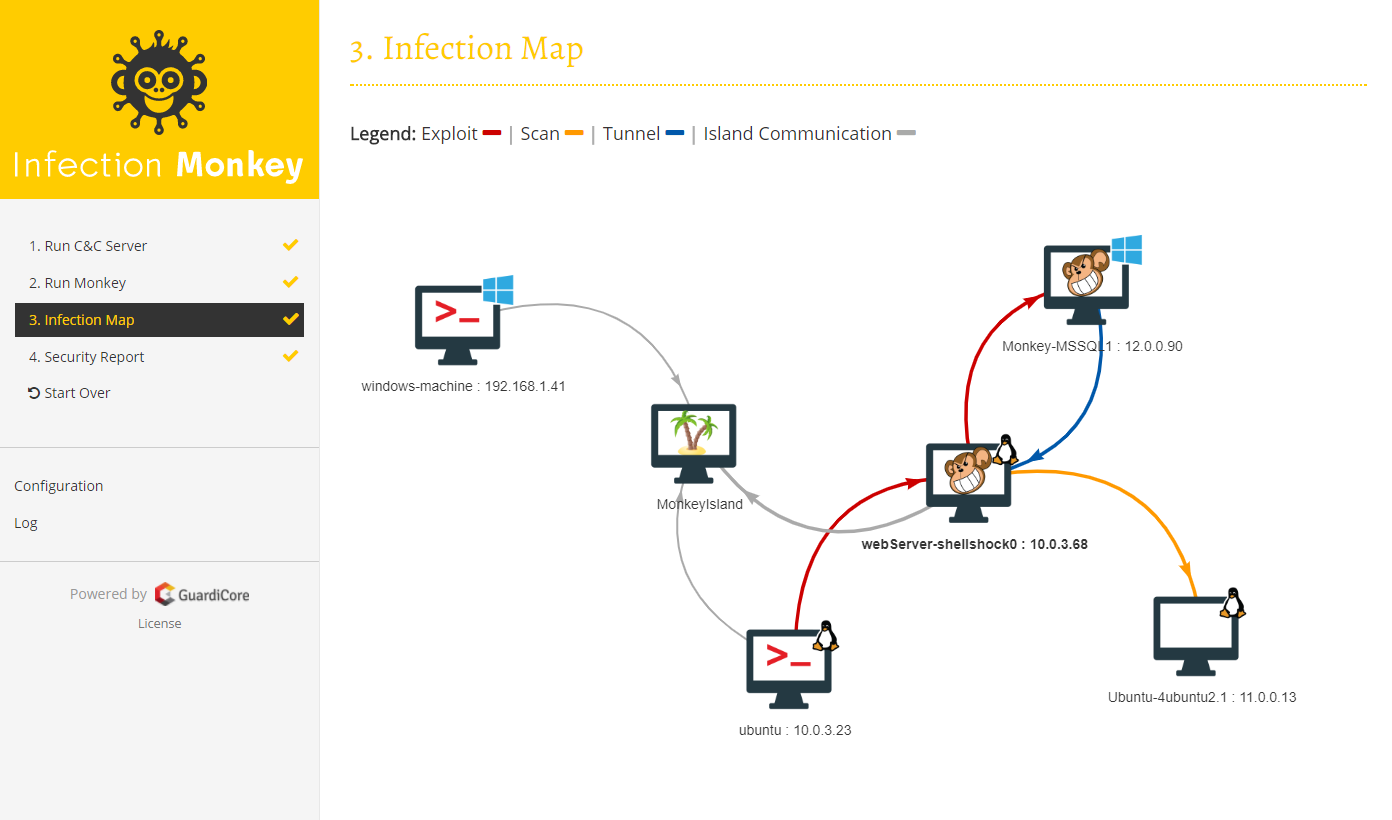|
|
||
|---|---|---|
| .github | ||
| chaos_monkey | ||
| monkey_business | ||
| monkey_island | ||
| .gitignore | ||
| CONTRIBUTING.md | ||
| LICENSE | ||
| README.md | ||
README.md
Infection Monkey
Data center Security Testing Tool
Welcome to the Infection Monkey!
The Infection Monkey is an open source security tool for testing a data center's resiliency to perimeter breaches and internal server infection. The Monkey uses various methods to self propagate across a data center and reports success to a centralized Command and Control(C&C) server.
The Infection Monkey is comprised of two parts:
- Monkey - A tool which infects other machines and propagates to them
- Monkey Island - A C&C server with a dedicated UI to visualize the Chaos Monkey's progress inside the data center
To read more about the Monkey, visit http://infectionmonkey.com
Main Features
The Infection Monkey uses the following techniques and exploits to propagate to other machines.
- Multiple propagation techniques:
- Predefined passwords
- Common logical exploits
- Password stealing using mimikatz
- Multiple exploit methods:
- SSH
- SMB
- RDP
- WMI
- Shellshock
- Conficker
- SambaCry
- Elastic Search (CVE-2015-1427)
Setup
Check out the Setup page in the Wiki.
Building the Monkey from source
If you want to build the monkey from source, see Setup and follow the instructions at the readme files under chaos_monkey and monkey_island.
License
Copyright (c) 2017 Guardicore Ltd
See the LICENSE file for license rights and limitations (GPLv3).
